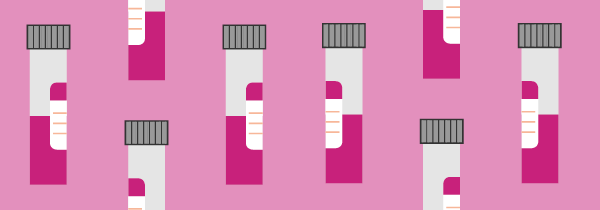Pelvic Inflammatory Disease (PID)
Many different types of bacteria can cause Pelvic Inflammatory Disease (PID), but many cases are the result of a chlamydia or gonorrhoea infection. Negative tests do not exclude infection simply that it wasn’t due to chlamydia or gonorrhoea.
How can I catch PID?
PID is a bacterial infection which only affects women. It can affect the womb, fallopian tubes and ovaries. Most cases of PID are caused by an infection in the vagina or the neck of the womb (cervix) that has spread to the reproductive organs higher up.
In some cases, the cause of the infection that leads to PID is unknown. Such cases may be the result of normally harmless bacteria found in the vagina. These bacteria can sometimes get past the cervix and into the reproductive organs. Although harmless to the vagina, these types of bacteria can cause infection in other parts of the body. Infection in this way is most likely to happen when there has been damage to the cervix, or if you have had PID before.
What are the complications of PID?
Abscesses
Sometimes, PID can cause abscesses in the fallopian tubes and/or ovaries. An abscess is a collection of infected fluid. It can usually be treated with antibiotics. If an abscess does not respond to antibiotics, you may require surgery to drain the infected fluid. It is important that abscesses inside the pelvis are either treated or removed, as an abscess that bursts inside you can be potentially life threatening.
Ectopic pregnancy
The word 'ectopic' means in the wrong place. In a normal pregnancy, the fertilised egg implants in the womb lining. An ectopic pregnancy is one that occurs outside the womb. Over 95% of ectopic pregnancies occur in a fallopian tube. If PID develops in the fallopian tubes, it can scar the lining of the tubes, making it more difficult for eggs to pass through. If a fertilised egg gets stuck and begins to grow inside the tube, it can cause the tube to burst, which can sometimes lead to severe internal bleeding. Ectopic pregnancy is a potentially fatal condition if not recognised and treated.
Infertility
It is estimated that one in five women may become infertile as a result of PID. This means they will be unable to get pregnant naturally. PID can make a woman infertile by scarring the fallopian tubes so severely that it makes it virtually impossible for the egg to travel down into the womb. Delaying treatment for PID or having repeat episodes of PID can increase your chances of becoming infertile.
How would I know that I had PID?
The symptoms of pelvic inflammatory disease (PID) are fairly general, which means the condition can be difficult to diagnose. The warning signs include:
- Pain around the pelvis or lower abdomen
- Discomfort or pain during sex that is felt deep inside the pelvis
- Bleeding between periods and or after sex
- Unusual vaginal discharge, especially if it is yellow or green
- Fever and vomiting
- Pain in the rectum (back passage)
You may have PID without being aware of it. Sometimes, there are no symptoms at all or symptoms may not be obvious. For example, you may only experience mild discomfort.
The more often a woman gets PID, the more likely it is likely to happen again. Repeated episodes of PID are associated with an increased risk of infertility.
What is the treatment for PID?
If it is diagnosed at an early stage, pelvic inflammatory disease (PID) can be treated quickly and efficiently with antibiotics. This usually involves a single injection followed by antibiotics by mouth for 2 weeks. More severe cases may require admission to hospital for observation and treatment with antibiotic injections. The longer PID goes untreated the more likely that there will be damage to the fallopian tubes and other reproductive organ. This may need surgery to stop the damage, but may not prevent infertility.
Always see your doctor or nurse if you think you might have PID as the sooner you are treated, the better. If you are given treatment, always make sure that you take all of your antibiotics and finish the entire course. It is important that your partner(s) have a check up and receive antibiotics. You should avoid any sexual contact until you have completed the course of antibiotics and your partner has been treated.
Do I need any repeat tests?
If chlamydia or gonorrhoea are found to be a cause of the infection you will be offered a test of cure a few weeks later. If the pain continues despite treatment you may need to be referred to gynaecology for further investigations.
Prevention
The most effective way to prevent pelvic inflammatory disease (PID) is to protect yourself from sexually transmitted infections (STIs).
This means using a condom for vaginal or anal sex, a dam or condom for oral sex or practicing safer sex alternatives

